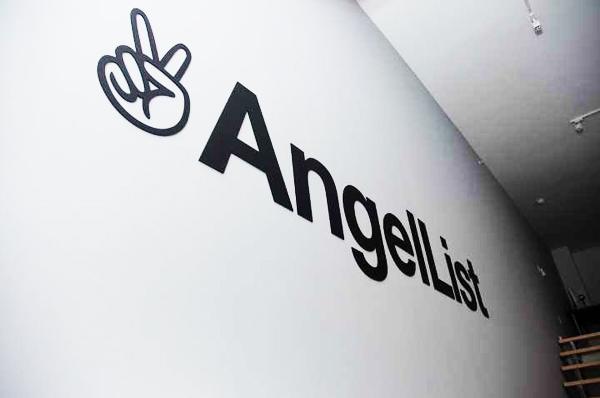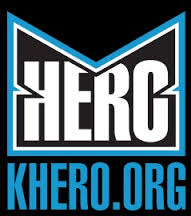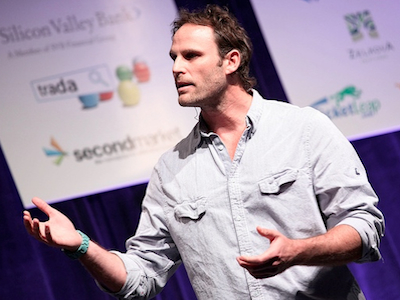Crowdfunding for equity is a hot topic right now. Much of the discussion centers around the JOBS Act, which is currently under deliberationby the U.S. Securities and Exchange Commission (SEC). Across the pond, however, equity-based crowdfunding has already taken off.
Last week, we spoke with Alysia Wanczyk, marketing director for the U.K.-based crowdfunding platform Seedrs, to learn about the platform’s progress and plans for the future. The first half of that discussion can be read here; the second part is available below.
Eric Blattberg, Crowdsourcing.org: So imagine I’m a potential investor. Walk me through the Seedrs investment process. What’s it look like from beginning to end?
Alysia Wanczyk, Seedrs: It’s relatively straightforward. First you sign up; in the beginning, all we need is your name and e-mail address. From there, you can either self-certify as a high-net-worth or sophisticated investor, or [complete a questionnaire] which demonstrates to us a level of financial understanding and sophistication that is just a bit different than those who are high-net-worth or sophisticated investors. It demonstrates that startups are risky, you should have a diversified portfolio — just a basic appreciation for financial management. Once you complete the survey, you are welcome onto the platform. You can browse all the different listings, ask questions of entrepreneurs, or just poke around. It’s really quite easy. If you find the start up you like, you can invest as little as £10. You have up to 48 hours to deposit money into your Seedrs account, and from there we’ll keep you posted. If the startup reaches its goal, will guide you through the process and let you know how it’s going. If it doesn’t reach its goal, we’ll let you know that as well, and refund your investment.
So once I have invested, how do I track the business and potentially sell my stake?
Once you invest and we complete all of the paperwork, we actually become the nominee shareholder. So all of the investors technically own their shares, but they own the benefits of the shares and we manage them. So if a startup needs votes or consents — if they want to sell their company, for example — all they have to do is come to us. They don’t have to reach out to potentially hundreds of investors; they just come to us as the sophisticated manager, and we can approve or disapprove anything that we need to. At the same time, we also make sure through our shareholder agreements that were giving the shareholders rights, so that somebody who owns, say, one percent of a company has majority rights. That’s to protect the investors.
Once we’ve completed the deal, we allow the entrepreneur to engage with their investors however they like: through quarterly reports; perhaps they need to reach out for mentors, an accountant, or beta testing, etc.; and at the same time investors can go on and ask questions of the startup, find out about meetings they’d like to attend, or even have a coffee with the entrepreneur. All of that can be managed online through the Seedrs site.
Wouldn’t it be difficult to have a coffee with potentially dozens or hundreds of people?
(laughs) Well yeah, we make it quite clear that it’s up to the parties involved. The entrepreneurs can say, “Listen, we are way too busy building our business,” and our investors know that. But generally, particularly for the investors who have a lot of experience and are perhaps experienced angels, the entrepreneurs really welcome their active involvement, because our entrepreneurs are so early-stage that they’re looking for the guidance and mentorship that can come with those types of investors. But at the same time, they’re not under any obligation to work with them or give them any sort of board seats or anything like that, so it’s really quite informal and flexible.
So can I as an investor sell my shares to Seedrs at any point I want? Are there limits on that?
Essentially, we let investors know they’re going to own the shares for the duration of the investment — until there is an exit. If the opportunity arises that one of the investors wants to sell their shares to somebody else they know, if they find another buyer, we’d be more than happy to arrange all of the paperwork to transfer the shares for whatever cost that they agree on. There is no established secondary market we use just yet, but I’m sure one will pop up that is a good fit for us in the next couple of months or years, but generally the investors know they’ll hold their shares until there some sort of exit.
So they’re really in it for the duration…
Absolutely. And, unfortunately, the reality is most businesses will fail. But hopefully investors have a diversified approach, because those few businesses that do well tend to do remarkably well compared to those that don’t [succeed].
Jumping back a bit chronologically, what’s the screening process look like for Seedrs? Do you do any due diligence on the startups or do you leave that up to the crowd?
Well, we don’t actually vet [whether] businesses are good ideas are not; there’s just a few of us in the office, and what do we know? But we do make sure that every statement that an entrepreneur puts in their pitch is fair, clear, and not misleading — and we need proof that it is true. So we do a bit of legal due diligence at the beginning, and so once we’re happy with all of that, we put it live and let the investors decide for themselves whether the business is worth funding or not. If something is patently nonviable, illegal, or perhaps just a bit shady, we definitely wouldn’t let that on. Otherwise, as long as the entrepreneurs can demonstrate their ability to explain themselves and show that they have a meaningful business proposition, then we let them on for the crowd to decide. And then, once they do secure their investment, that’s when we do further due diligence to make sure that we are happy — we try to backend all of that work so that we are happy to proceed with the investment.
Full Interview Here











